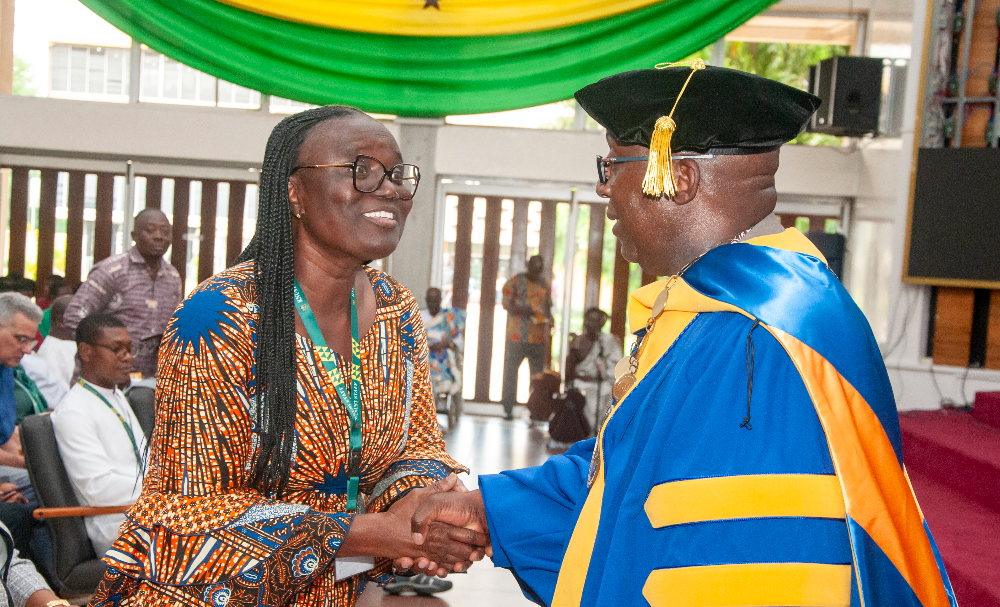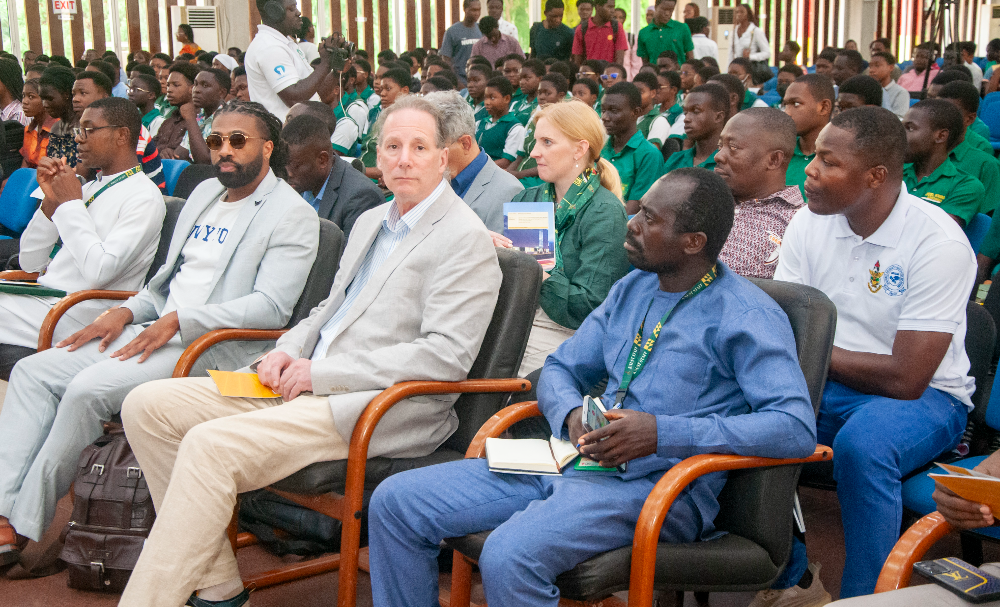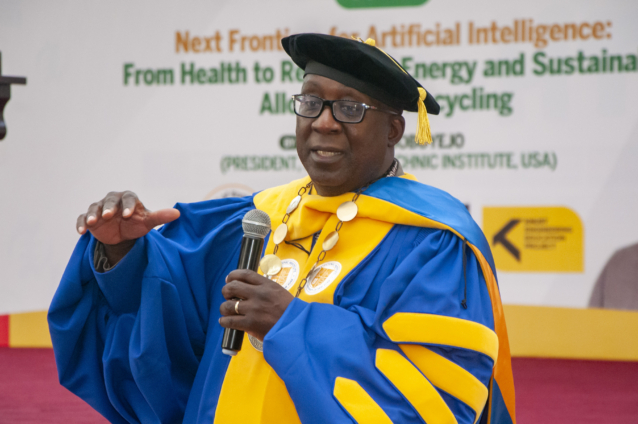President of the State University of New York Polytechnic Institute in the USA, Prof Winston Wole Soboyejo has emphasized the need for African countries to better harness the continent’s abundant energy resources.
In a public lecture organised by the College of Engineering KNUST, Prof. Soboyejo highlighted the immense, yet underutilized, energy reserves across Africa.
"A single drop of the Congo River holds enough energy to meet one-third of the continent's needs. Similarly, the Sahara Desert has solar potential equivalent to another one-third of the energy demand, yet none of it is harvested," he remarked.
Beyond hydropower and solar energy, he pointed to Africa’s wealth in natural resources such as uranium, oil, gas, and coal.
"The Gulf of Guinea alone holds 10% of the world’s oil and gas reserves, South Africa has vast coal reserves, and the potential for solar energy spans the continent. Africa doesn’t have an energy crisis; it suffers from a lack of appreciation for its energy resources and the strategies needed to harness them," he stated.
Prof. Soboyejo also called for a new generation of thinkers to develop sustainable strategies for utilizing these resources effectively, ensuring benefits for future generations.
The lecture, titled "Next Frontiers for Artificial Intelligence: From Health to Renewable Energy and Sustainable Alloy Design/Recycling," explored the transformative potential of AI in various fields. In the healthcare sector, he showcased AI’s applications in breast cancer detection and treatment.
He also delved into advancements in solar technology, emphasizing the cost-effective potential of perovskite solar cells over traditional silicon-based alternatives, improved through AI and contact mechanics techniques.
Prof. Soboyejo stressed the importance of collaboration and adopting innovative technologies such as AI, the Internet of Things (IoT), and the Internet of Services (IoS).
"Think about robotics in logistics, AI and machine learning in construction, and revolutionizing agriculture in Africa," he challenged the audience.

The Vice-Chancellor of KNUST, Professor (Mrs.) Rita Akosua Dickson, who chaired the lecture, underscored the significance of embracing AI and its opportunities. "Artificial Intelligence has come to stay. The sooner we accept and create an environment to harness its potential while addressing challenges such as ethical implications, the better," she noted.
She highlighted KNUST’s dedication to fostering responsible AI through its initiative, the Responsible Artificial Intelligence Laboratory (RAIL). "AI is not just about advanced algorithms or machine learning; it involves people, researchers, engineers, policymakers, and innovators working together to turn visions into reality and solve pressing problems," she added.

The event also provided an interactive platform for students from Senior and Junior High Schools to engage in discussions on pressing issues related to Artificial Intelligence and Machine Learning, offering valuable insights for the younger generation.
Latest Stories
-
Parliament approves new GH¢1 fuel levy after minority walkout
3 hours -
Tesla executives questioned Musk after he denied killing $25,000 EV project, sources say
4 hours -
Oreo maker sues Aldi in US over ‘copycat’ packaging
4 hours -
US steel and aluminium tariffs doubled to 50%
4 hours -
Ghana’s legal education debate: Are we expecting too much too soon?
5 hours -
Alcaraz storms through to semi-final with Musetti
5 hours -
Black Queens wrap up Abidjan training tour with defeat to Côte d’Ivoire
5 hours -
Inzaghi leaves Inter Milan ‘by mutual agreement’
5 hours -
‘Man Utd didn’t need the money’ – Fernandes rejects Al-Hilal move
5 hours -
Cybercrime ringleader, 10 others remanded in custody
5 hours -
Gov’t to expand student loans to all tertiary institutions – Education Minister
5 hours -
WaterAid Ghana, Guinness Ghana commission water project in Upper West Region
5 hours -
Energy levy: ‘You can’t continue pouring water into a leaking bucket’ – COPEC warns
5 hours -
Rising Star: Yvonne Dadson’s groundbreaking research earns international recognition
5 hours -
Suicide bomber killed in Uganda on Christian holy day, army says
6 hours

